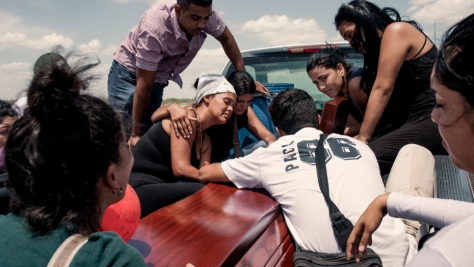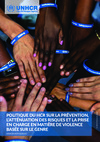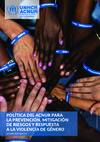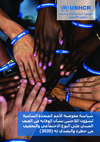Men, women and children suffering from harsh physical conditions and legal shortcomings at Pacific Island asylum centres: UNHCR reports
This is a summary of what was said by UNHCR spokesperson Adrian Edwards – to whom quoted text may be attributed – at today's press briefing at the Palais des Nations in Geneva.
In two reports released today, UNHCR finds that asylum-seekers transferred from Australia to processing centres at Nauru and Manus Island in Papua New Guinea (PNG) are living in arbitrary detention in conditions that do not meet international standards of treatment.
UNHCR understands Australia's determination to respond robustly to the challenges of people smuggling and to dissuade people from undertaking dangerous irregular travel by sea. However we believe those responses must not neglect the compelling protection needs, safety and dignity of the individuals affected.
These reports are also in the context of what UNHCR has observed to be a sharp deterioration during 2013 in the overall quality of protection and support available to asylum-seekers and refugees who come to Australia by boat. It remains the case that when policies and practices are based primarily on deterrence, they can have harmful and, at times, punishing consequences for people affected, particularly families and children.
The reports identify troubling shortcomings at both centres, and urge all three States involved to consider the findings and recommendations and act upon them.
In both Nauru and PNG the current policies, operational approaches and harsh physical conditions at the centres not only do not meet international standards - they also have a profound impact on the men, women and children housed there.
UNHCR is concerned that they constitute mandatory detention which is not compatible with international law. We are also worried that they do not provide a fair and efficient system for assessing refugee claims, do not provide safe and humane conditions of treatment in detention, and do not provide for adequate and timely solutions for recognized refugees.
With the Nauru report, it acknowledges some positive developments since our last visit in March. However, there have also been significant setbacks in refugee processing, and a deterioration in reception conditions. Despite a processing system being in place under Nauru law, only one decision has been handed down in the 14 months since the centre reopened.
No decisions at all have been finalized at the centre in PNG, and while some improvements were observed since UNHCR's last inspection in June, the physical conditions within detention, together with the slowness of processing and the lack of clarity regarding safe and sustainable solutions for refugees were likely, together, to have a serious and negative effect on the health and welfare of people transferred from Australia.
At both centres, the psycho-social well-being of vulnerable people - including survivors of torture and trauma and unaccompanied children - is an issue of concern. UNHCR also called on all three States not to transfer children, particularly those who are unaccompanied, unless and until there has been a marked improvement in conditions in both centres.
UNHCR is particularly concerned by the impact of policies that will prevent recognized refugees from finding safe, dignified and sustainable solutions in the medium to long term. The prospect for refugees in PNG finding permanent protection there presents formidable challenges, and it is clear that Nauru will offer only very limited opportunities for refugees even in the shorter term.
UNHCR believes the arrangements at Nauru and PNG would benefit from a much clearer articulation of the policy and operational framework that would set out how, when and where refugees will be able to secure protection and exercise the rights required under the 1951 Refugee Convention.
The full reports, including recommendations, are available at: www.unhcr.org.au
For more information on this topic, please contact:
- In Canberra (Regional): Ben Farrell on mobile +61 407 971 686
- In Geneva: Adrian Edwards on mobile +41 79 557 91 20
- Babar Baloch on mobile +41 79 557 9106
Related news and stories
Global photo project shows power of football during displacement
The Kenyan powerhouse improving women's lives in Australia
UN refugee chief welcomes cities' support for refugees
UNHCR appeals to Australia to act and save lives at immediate risk
UNHCR urges Australia to end separation of refugee families
'We must believe we can make a difference and we can do things better' - Andrew Harper
-

A final resting place for Venezuelans in Colombia
17 Mar 2021 -

UNHCR Policy on the Prevention of, Risk Mitigation and Response to Gender-based Violence, 2020 (PDF) - French
16 Mar 2021 This Policy consolidates the significant progress made by UNHCR and partners to prevent, mitigate and respond to Gender-based Violence. The policy covers all UNHCR Operations and all people of concern. It applies to all stages of the programme cycle, throughout the displacement continuum, in emergencies and protracted displacement settings, as well as in mixed flows and onward movements, and situations of statelessness. -

UNHCR Policy on the Prevention of, Risk Mitigation and Response to Gender-based Violence, 2020 (PDF) - Spanish
16 Mar 2021 This Policy consolidates the significant progress made by UNHCR and partners to prevent, mitigate and respond to Gender-based Violence. The policy covers all UNHCR Operations and all people of concern. It applies to all stages of the programme cycle, throughout the displacement continuum, in emergencies and protracted displacement settings, as well as in mixed flows and onward movements, and situations of statelessness. -

UNHCR Policy on the Prevention of, Risk Mitigation and Response to Gender-based Violence, 2020 (PDF) - Arabic
16 Mar 2021 This Policy consolidates the significant progress made by UNHCR and partners to prevent, mitigate and respond to Gender-based Violence. The policy covers all UNHCR Operations and all people of concern. It applies to all stages of the programme cycle, throughout the displacement continuum, in emergencies and protracted displacement settings, as well as in mixed flows and onward movements, and situations of statelessness. -

Aid agencies appeal for funding to support over 2 million South Sudanese refugees in dire need
16 Mar 2021 -

UNHCR - Maternal death review guidance and data collection form, 2020 (PDF)
15 Mar 2021 UNHCR is promoting the systematic review of maternal deaths to learn from those situations, improve the quality of safe motherhood programming and prevent future maternal and neonatal morbidity and mortality. Further, the reviews help to identify actions that prevent future shortcomings in access to quality essential maternal and neonatal health services. This form and the accompanying guide are used to systematically assess and document maternal deaths and develop action plans. -

Inside Syria, millions face destitution after a decade of pain
15 Mar 2021 Compounding crises increase misery for Syrian families trying to pick up the pieces after ten years of conflict, including 6.7 million people still displaced inside the country. -

A decade on, Syrian refugees mired in 'silent war' for survival
12 Mar 2021 As the Syria crisis reaches the 10-year mark, millions of refugees face unprecedented hardship due to rising poverty, lack of opportunity and the impact of COVID-19. -

A decade of death, destruction and displacement must not sap our solidarity with Syrians
12 Mar 2021 Statement attributable to Filippo Grandi, UN High Commissioner for Refugees
